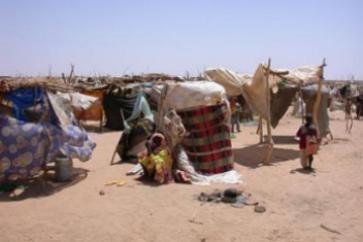UN special envoy calls on Sudan to give aid agencies more access to Darfur; calls refugee situation in Chad serious

By ABAKAR SALEH Associated Press Writer
N’DJAMENA, Chad, Jan 13, 2004 (AP) — A U.N. envoy called on Sudan Tuesday to grant greater access to aid agencies trying to help people displaced by fighting in western Sudan and said the resulting refugee situation in neighboring Chad was growing more serious by the day.
Tom Eric Vraalsen, the special envoy for humanitarian affairs in Sudan who spent the past five days visiting makeshift refugee settlements in eastern Chad, said 600,000 people had been displaced by the fighting in the Darfur region, and more than 90,000 of them had fled into Chad.
“Up to now, the government of Sudan has not given sufficient access to Darfur,” he said, adding that a cease-fire was urgently needed to enable relief workers to reach the affected people.
Vraalsen met earlier Tuesday with Chad President Idriss Deby, who had been mediating in the conflict between the rebel Sudan Liberation Army and the Sudanese government until talks broke down on Dec. 16 over what Chadian officials termed “unacceptable rebel demands.”
When asked about the prospect of further talks, Vraalsen told reporters the purpose of his visit was “humanitarian, not political.”
The SLA is calling for self-determination for Darfur and has been fighting government troops and government militia, known in Arabic as “janjaweed,” since February. The militiamen are drawn from Sudan’s Muslim, Arab population. The rebels in Darfur, although Muslim, are black Africans, often of mixed Arabic ancestry, from the Fur, Massalit and Zaghawa groups that live on both sides of the border.
Deby, his political allies and his presidential guard are all Zaghawas, a situation that complicates his mediation.
Vraalsen said the United Nations had already set in motion a three-month US$4.3 million emergency program to transfer the refugees to sites in eastern Chad at least 50 kilometers (30 miles) from the border and to purchase food for them before the rainy season begins in June.
Once the rains begin, Chad’s unpaved roads will become impassable. The first camp will be located at Farchana, about 800 kilometers (500 miles) northeast of N’Djamena, the capital. Other camps will be set up in Guereda and Iriba to the north, and Goz-Beida to the south.
A statement from the U.N. Development Program in N’Djamena said the short-term emergency program was “intended to bridge the gap until a more comprehensive estimation of the consolidated requirements for the coming 12 months is ready.”
Chad brokered a cease-fire between the Sudanese government and the SLA on Sept. 3 that was extended at a Nov. 4 meeting. It was to have been formalized at the Dec. 16 talks.
Although officials did not elaborate on rebel demands that led to the breakdown, it is believed the SLA wanted other rebel groups, particularly the Justice and Equality Movement, included in the cease-fire.
In a December 2003 report, the International Crisis Group, a conflict think tank, cited numerous reports of looting and killings in Darfur carried out by the militias.
